What is a Black Horse Car Finance Claim?
You may be entitled to claim from Black Horse Finance if you were not properly informed about commission arrangements on your car finance agreement. Black Horse Finance operates as a motor finance provider in the UK market and has been involved in landmark court cases regarding commission disclosure.
The Supreme Court found the relationship between Mr Johnson and his lender to be an “unfair relationship” under section 140A of the Consumer Credit Act (CCA) due to a combination of key factors. Contributing factors can include a large, undisclosed commission paid to intermediaries, the failure to clearly and prominently inform the borrower about such commissions or key commercial arrangements, and documentation that gives a misleading impression about the lender’s independence or available options. When important costs or relationships are not transparent and disclosures are buried in small print or overshadowed by other terms, the overall effect can be to deprive the borrower of informed choice, leading a court to find the relationship unfair.
Understanding Black Horse’s Commission Structure
Black Horse is a UK-based finance provider that partners with car dealerships and brokers to offer consumer car finance. Their business model typically relied on:
Introducer Commissions: Black Horse paid commissions to car dealerships or brokers when they introduce a customer who takes out a car finance agreement.
Discretionary Commission Arrangements (DCAs): Historically, the dealer or broker often had discretion to adjust the interest rate offered to the customer. The higher the rate, the higher the commission they received.
Understanding Discretionary Commission Arrangements (DCAs) vs Non-Discretionary Arrangements
How Discretionary Commission Arrangements (DCAs) Work
A Discretionary Commission Arrangement (DCA) was a type of commission model widely used in the UK motor finance industry before being banned in January 2021. Under a DCA, car dealers or finance brokers had the power to adjust the interest rate offered to customers on car finance agreements. The key feature was that the higher the interest rate set by the dealer or broker (within limits set by the lender), the more commission they would earn from the finance company.
This created a conflict of interest where dealers and brokers were incentivised to increase the interest rate as much as possible, maximising their own commission at the expense of the customer, who would end up paying more for their car finance than necessary. Customers were rarely made aware of this arrangement, and the structure was often not disclosed transparently.
For example, if a lender’s base rate for a customer was 5%, but the dealer could set the rate up to 8%, the dealer might choose 8% to earn a larger commission. The customer, unaware of the dealer’s discretion, could pay thousands more over the life of the loan.
How Non-Discretionary Commission Arrangements Differ
A Non-Discretionary Commission Arrangement is fundamentally different. Here, the commission paid to the dealer or broker is fixed—either as a flat fee or as a set percentage of the loan amount. The dealer or broker has no power to alter the interest rate offered to the customer.
In these arrangements, the customer’s interest rate is determined solely by the lender, based on factors like creditworthiness and loan terms, and not by the dealer or broker. The commission the dealer receives does not increase if the customer pays a higher interest rate.
You may be able to claim compensation if you purchased a car, van, or motorcycle through Personal Contract Purchase (PCP) or Hire Purchase (HP) finance arranged by Black Horse between April 2007 and January 2021, and the finance agreement involved hidden commission arrangements.
Black Horse Car finance agreements may have been mis-sold due to:
- Large, undisclosed commissions paid to intermediaries, which are not clearly explained to the borrower.
- Failure to give clear, prominent disclosure of key costs, commissions, or commercial relationships that could influence the sale.
- Misleading or incomplete impression about the lender’s independence or the range of available finance options.
- Key information hidden in small print or overshadowed by other terms, depriving the borrower of an informed choice.
Are you owed money back?
Legal Developments and Court Rulings
In August 2025, the UK Supreme Court handed down its decision in the joined motor finance commission appeals (Johnson v FirstRand Bank Ltd, Wrench v FirstRand, and Hopcraft v Close Brothers). The Court overturned key parts of the Court of Appeal’s 2024 rulings. It held that car dealers who arrange finance do not owe customers a special “fiduciary” duty of single minded loyalty, and that the mere payment of commission (even if not fully disclosed) does not automatically make the deal unlawful or a ‘bribe’. Dealers are entitled to act as arm’s length sellers pursuing profit. However, the Court did uphold Mr Johnson’s claim that his deal created an ‘unfair relationship’ under section 140A of the Consumer Credit Act 1974 and ordered the lender to repay the commission to him with interest.
The most senior court in the UK has sent a powerful message that certain commission arrangements are unlawful, if certain factors apply. Some commentators suggest that this means commission cases each need to be looked at on a case-by-case basis to see if they share similarities with Mr Johnson’s arrangement being deemed by the Supreme Court as ‘unfair’.
Current Status and Response Times
The Financial Conduct Authority (FCA) has given providers until after 4 December 2025 before they have to start responding to any type of car finance commission complaint. This means Black Horse has until after 4 December 2025 to respond to complaints about commission arrangements.
The FCA is currently consulting on a potential customer redress scheme, the decision on which they aim to announce in October 2025, with compensation payments starting in 2026 if it goes ahead.
Case Study: Hopcroft v Close Brothers Limited
Close Brothers Limited was one of the key defendants in the landmark Court of Appeal case alongside MotoNovo. The case established that car sales firms couldn’t lawfully receive commission from finance firms unless they had the customer’s “fully informed consent”. This ruling has significant implications for Close Brothers customers who were not properly informed about commission arrangements.
The case demonstrates that customers who had commission of any type on their Close Brothers car finance agreement could potentially be owed money back, as the court ruled that proper disclosure of commission details, including the amount, was required for the agreement to be lawful.
Regulatory Review and Current Status
The Financial Conduct Authority (FCA) is conducting a comprehensive review of historic commission arrangements in motor finance. The FCA has paused the handling of complaints relating to both discretionary and non-discretionary commission arrangements until after December 2025, pending the outcome of Supreme Court proceedings.
However, you can start your claim with Allegiant today.
Types of Finance Agreements Covered
Claims can be made for various types of Black Horse finance agreements:
- Personal Contract Purchase (PCP) agreements
- Hire Purchase (HP) agreements
- Finance for cars, vans, trucks, and motorcycles
- Both new and second-hand vehicles purchased through finance
- Agreements that are still active with ongoing payments
- Agreements that have ended and been fully paid off
- Multiple vehicle agreements
- Cases where the vehicle was repossessed
How Much Could You Claim from Your Car Finance Agreement?
The amount of compensation depends on several factors:
- The size of the loan taken out with Black Horse – generally, larger loans result in higher compensation
- The length of the agreement – longer payment periods typically result in higher compensation
- The commission arrangements and interest rates involved
- Additional compensatory interest may be awarded
Black Horse customers may be entitled to significant compensation amounts based on the commission arrangements that were not properly disclosed in their car finance agreements. The substantial commission payments demonstrate the significant amounts that may be recoverable in car finance claims and PCP claims.
Why Choose Allegiant for Your Car Finance Claim?
Allegiant has won over £1.4 Million in compensation payouts for Unaffordable Car Finance claims. As a specialist claims management company, we understand the complexities of motor finance claims and have the expertise to investigate and pursue PCP claims and car finance claims against major lenders like Black Horse effectively.
No Upfront Fees Guarantee – We guarantee no upfront fees for our car finance claim service. Any fee is only due to Allegiant if we successfully win you cash in the bank from your claim. This means you’re at no financial risk when making a claim with us.
Our track record demonstrates our commitment to securing fair compensation for clients who have been affected by undisclosed commission arrangements in their car finance agreements.
Our Car Finance Claims Process
- Free Claim Check – We review your Black Horse finance agreement details at no cost to determine if you may have a valid car finance claim
- Investigation – Our experts investigate the commission arrangements and gather evidence to support your PCP claim or car finance claim
- Claim Submission – We submit your claim to Black Horse on your behalf and handle all correspondence
- Compensation – If successful, you receive your compensation payment once the claim is resolved
You only pay a fee if you receive compensation – if you get nothing, there’s no charge. Our fees range from 18%-36% inc. VAT on successful claims.
Next Steps
If you believe you may have been mis sold car finance by undisclosed commission arrangements from Black Horse Finance, contact Allegiant today. As a specialist claims management company, we can investigate your PCP agreement or car finance agreement and submit a claim to Black Horse on your behalf. Reclaim your money with Allegiant.
Sources:
- Court of Appeal ruling: Johnson v FirstRand Bank Limited t/a MotoNovo Finance and Hopcroft v Close Brothers Limited [2024] EWCA Civ 1203
- Available at: https://www.judiciary.uk/wp-content/uploads/2024/10/Johnson-v-Firstrand-Bank-and-Hopcroft-v-Close-Brothers.pdf
- Black Horse Finance customer information and industry reports
Frequently Asked Questions
What are the indicators of mis-selling?
Mis-selling refers to situations where a customer was not given all the important facts before being sold a product or service, or did not give their full, informed consent to proceed. Key indicators include a lack of transparency about commissions paid to dealers, inadequate explanation of finance terms and conditions, or the presence of a discretionary commission arrangement (DCA) within a finance agreement. In such cases, the dealership could have increased the interest rate on the loan, at the customer’s expense, without their knowledge or consent
Were discretionary commission arrangements banned?
Yes. The Financial Conduct Authority (FCA) banned discretionary commission arrangements (DCAs) from January 28, 2021. Before this ban, DCAs were widespread and often used without customers’ full knowledge or consent. The ban was introduced because these arrangements incentivised brokers to increase interest rates for their own benefit, often at the expense of the customer
Did my car finance include commission?
Probably. It is estimated that around 95% of car finance deals included some form of commission. This could be a discretionary commission arrangement (DCA) or another type of commission. The exact nature and amount of commission were rarely disclosed to customers
How do Black Horse mis-sell agreements?
Black Horse may have mis-sold finance agreements by failing to provide adequate information about the risks and true costs involved. This includes not explaining the implications of a discretionary commission arrangement (DCA), which could result in customers unknowingly paying higher interest so that the dealership could earn more commission. Some customers, facing these extra costs, may have struggled with repayments and risked having their car repossessed
Are there additional fees and charges in a finance agreement?
Customers are often unaware of the amount of any commission, as it is rarely included in the credit agreement. This commission is typically a hidden payment between the lender and the dealership, but it can result in the customer paying more overall. Additionally, many customers are surprised by the size of the ‘balloon payment’ at the end of a car finance agreement, which is much larger than the monthly instalments and must be paid to own the vehicle outright
What are the implications of the Supreme Court ruling?
The Supreme Court ruling in August 2025 clarified the law in the UK around commissions attached to motor finance arrangements. The Supreme Court deemed one particular commission arrangement to be unlawful under a section (s.140A) of the Consumer Credit Act. There can be various factors which contribute to a commission arrangement being unfair under the Consumer Credit Act, for instance: the size of the commission, the nature of the commission, the characteristics of the customer, the extent and manner of the disclosure, and compliance with the regulatory rules. The Supreme Court in particular said the fact the undisclosed commission was so high is a powerful indication that the relationship between the customer and his lender was unfair. Customers with claims that share similar facts to the case the Supreme Court upheld, ought to be due compensation too.
Do most finance claims succeed?
It is currently difficult to give a definitive success rate for these claims, as many are on hold pending regulatory and legal decisions. The Financial Ombudsman Service has upheld complaints in favour of customers where DCAs were involved. However, the FCA has paused these claims while the full extent of the mis-selling is determined. Once the pause is lifted, it is widely expected that many customers will receive compensation











